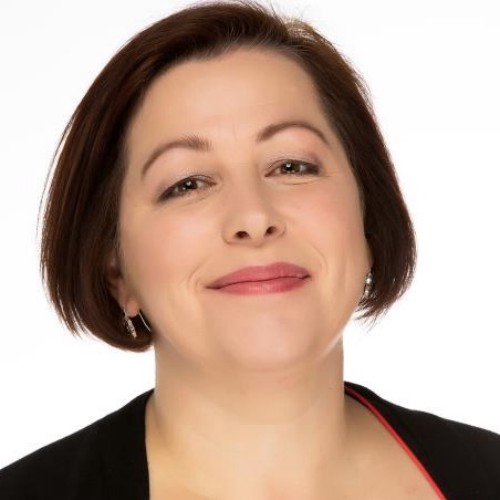Knowing yourself and being mindful of your tipping points are the basis of achieving better balance in all aspects of your life.
First, let’s stop calling it work-life balance — it creates a conflict that does not need to exist. People have intrinsic motivators to work, it’s not all about money and incentives. We have the need to feel like we’re making a difference; to be contributing to something larger than ourselves; to feel like we are achieving; and so on.
But work-life balance implies that work is something outside of our ‘life’ — whereas nothing could be further from the truth. For many of us, what we do for work is how we define ourselves in the world, and I believe that conceptualizing it as ‘work-life’ diminishes that image we hold of ourselves.
Change the Concept — It’s not a Scale
Our lives are a combination of many different aspects, work is an important part of that, but it is still only one part. Sadly, it is a part that most of us don’t feel like we have a lot of control over, but that’s a whole other article.
If you conceptualize balance as a scale, you will never feel like you have achieved it — you need to turn that idea on its head. Shifting the concept is a powerful way to adjust this, and help you gain better balance.
Let’s try something first, stand on one leg. You’ll notice you need to make slight movements to stay balanced, but you should be pretty stable. Okay, now try it with your eyes closed — go on, I’ll wait. What did you discover? You needed to make a lot more adjustments, and you were far less balanced, right?
Balance is more difficult if you can’t see where you’re going — or where you want to go. You need to know:
- what success means to you
- what your tipping points are
- what actions to take when you need to push or pull.
Understanding your idea of success
I discovered this wonderful idea during My Year of TED, from Alain de Botton: A kinder, gentler philosophy of success. It’s the idea of developing success statements for all of the important aspects of your life — it’s even part of my decision making freebie.
The idea is to define what success looks like for you in all of the important areas of your life: career, relationships, finances, health etc. Alain says you can use this as a way to calm down that awful human trait of comparing yourself to others, which is very true.
But the other role it performs is helping you understand what is truly important to you — what are the non-negotiable parts of your life that form the basis of success for you? Once you know these you can craft a balanced life that meets your needs.
For example, if your definition of family success is that you attend all the major events in your children’s lives (like sport, school plays, award ceremonies, etc.), you need to factor that into the demands of your working life. Otherwise no matter how well you ‘achieve’ at work, you’re going to feel like a failure with your family.
Balance is achieved in the moments
The second point comes from my first lesson of learning to invert in the aerial silks — you have to feel for the point where you go from pulling to pushing to remain upright.
In real life, that means you have to maintain an awareness of your tipping points — when you need to push and pull to remain balanced. Because balance is not like a set of scales, and we need to stop thinking of it like that.
Sometimes you can work a 50 hour week, feel invigorated and ready to take on even more work. You’ve been achieving and it’s pumped up your energy, so you can also take on visiting your in-laws and mowing the lawns on the weekend — you can continue to Push in all areas.
Other weeks, every day is a struggle, and if one more demanding email comes in, you’re going to pick your computer up and throw it out the window. No amount of yoga or walks at lunch will help you achieve ‘balance’ — you need to Pull back and regenerate.
This means you need to maintain a constant awareness about when you are reaching a tipping point, so you can adjust for balance. This will allow you to Push and Pull as required, rather than gritting your teeth and waiting for the massage you are getting on Saturday to put everything right.
You need self-care and stretch goals
You will need go to techniques that allow you to Pull back for balance, and things you want to achieve so you can Push forward at the right times. This doesn’t just apply to work either — as an introvert I need self-care mechanisms if I’m travelling interstate to visit family for a couple of days!
For me, pulling back during my day might mean moments with my dog, reading, crafting, listening to a podcast, playing a game on my phone. Your list should include anything you do to self-care in your life.
When I’m achieving and feel like I can take on the world, well I have a list of things I need to be feeling brave to do. For me, this includes sending emails I find particularly daunting, pitching a story or book, reaching out to people, or tackling a difficult part of a book/story I’m writing. Your list should include any stretch goals or daunting tasks you have for yourself.
[tl;dr] How do I achieve better life balance?
- Know what success looks like for you in all aspects of your life and factor that in— this will help you understand why you might be feeling out of balance even if one part of your life is going well.
- Understand that balance happens in the moment, so you need to be aware of your tipping points and whether you need to push or pull to stay balanced— stand on one foot with your eyes shut and feel how you have to constantly adjust your weight and movement, that is the balance I mean.
- Have a list of self-care techniques for when you have to pull back, and stretch goals for when you want to push harder — these apply to all aspects of your life, not just work.
I’ve come to understand that a true balance is when you understand what you want and need in your life, and you work to achieve it. If you don’t know what you want and need, how do you know you’re pushing for the right things? How do you know when you need to pull back to keep yourself sane?
Originally published at medium.com


